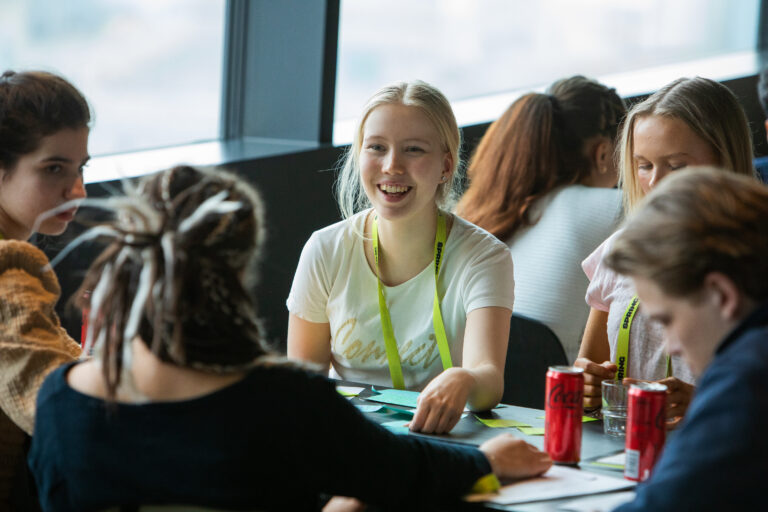Spring invites you to ideate a more hopeful future
Ideas change the world, and relevant problems require new solutions. The Spring idea competition offers young people the opportunity to develop their own ideas and impact the course of the future as a part of their studies. We asked earlier participants why teachers should include Spring in their curriculum.

Three teams were selected as the winners of Spring in May 2024. The winning teams were Matchpoint, looking to make it easier to find friends for hobbies, Kupla, who strives for an improved culture of discussions, and Ecoinsight, trying to prevent the loss of biodiversity with their idea.
The teams were awarded with a summer job for advancing their ideas. A study trip to Copenhagen was included in the four-week long summer job, during which the teams got to meet international frontrunners and organisations.
Participating in the idea competition provided the young innovators with a multitude of skills for the future. Competences within teamwork and working together were deemed especially important by the participants.
“I learned skills required for developing ideas – so that all these thoughts wouldn’t just stay in my head. Now I’m better equipped to think about how to advance my ideas and whose help I would need”, says Valtteri Laivoranta from Matchpoint.
Spring functions as a part of lessons and teaching
Besides the idea competition itself, there have been Spring idea-workshops organized in schools, during which young people have the opportunity to identify problems and innovate solutions to these.
“Teachers have been happy with the fact that Spring offers participants a concrete way of acting and impacting matters close to themselves, while developing work life skills such as teamwork, problem-solving, and presentation”, explains Katariina Tonttila, producer of Spring.
The themes of Spring are applicable to multiple school subjects and the contents can be utilized for example in study guidance or multidisciplinary learning. Young people see the importance in a broad spectrum of themes, such as fake news, climate change, mental health, artificial intelligence, and citizen participation.
“During our school visits we’ve recognized that especially teachers of history and social studies play a significant part in encouraging the students to participate. Young people have a vast amount of information and perspectives on contemporary topics, and it would be great to see as many subjects as possible providing them with the opportunity to make their voices heard”, Tonttila suggests.
Participation in Spring can be encouraged with small acts as well, for example by giving the students a moment to ideate together.
“A small task could work, homework where the students would come up with an idea”, says Aaro Rainio from Ecoinsight.
You learn active citizenship in Spring
Spring offers young people a chance to impact their future. The Spring-winners of 2024 say this goal was fulfilled in their case.
“Spring taught us how to be an active citizen and how you can make an impact through your own ideas. This will surely benefit us far into the future”, says Nella Salminen and Waleed Ahmed from Kupla.
Besides offering young people the opportunity to ideate and impact society, the idea competition aims to strengthen their future belief. Young people who participated in Spring see this as important and relevant grounds for encouraging as many as possible to participate and develop their ideas.
“Providing a large group of young people the chance to advance their ideas will certainly lead to a more hopeful future”, Salminen sums.
How to apply Spring to your lessons
- Book a Spring-presentation or idea workshop to your school
- Provide the students a lessons worth of time to ideate with the inspirational materials
- Familiarize with the Spring-videos and teaching materials together with the students
